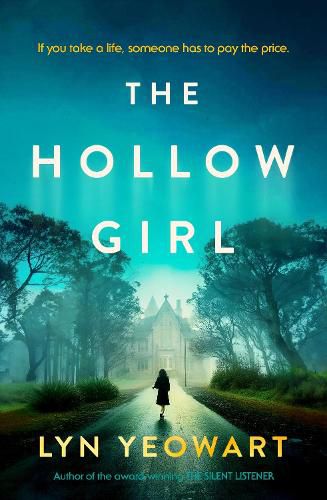The hollow girl by Lyn Yeowart

Lucy Whitehall’s sister is getting married in 1961 and she persuades her family to invite her 14-year-old best friend, Jane Elisabeth McEvoy to the wedding. But Lucy abandons her friend for an attentive boy, leaving Jane adrift and vulnerable to the attentions of the bride’s drunken father and she subsequently finds herself pregnant. According to the nameplate on the front door Harrowford Hall is a ‘haven for girls in crisis”. The grand building at Horsham presents a smart public face in 1961 but for Marilyn Genevieve Pollard, despised and reviled for ‘getting herself pregnant' the reality of becoming a resident means that she is stripped of any personal possessions, and forced to become one of the ‘laundry whores' who cook, scrub and polish until their babies are due. Jump to 1973 and the home has been closed for a month, but a nurse has been murdered there, and Detective Sergeant Eleanor Smith is assigned her first murder investigation by her misogynist boss, Superintendent Cotter, as it is women’s business. In 1961 society attitudes to unwed mothers was harsh, blaming the girl and pushing for the babies to be adopted, but I got tired of the repetitive 'sluts and whores' name calling. In 1973 the police force was unrepentantly sexist, Eleanor Smith, ’15 years a cop, just the twelfth detective in Victoria without a penis' p33, is to be admired, but Cotter’s repetitive slurs and hair comments became tiresome. The goings on at the government run home were extreme to the point of the reader needing to suspend disbelief and this distracted from the plot. I am still a bit confused about the two main characters, one of whom disappears into the home at a critical moment and the detective who seems to flounder about with her sidekick constable in fear of confirming her boss’s belief that women don’t belong in the police force.
Readers might enjoy this as a multiple murder puzzle in a gothic setting at a time of harsher and unforgiving social mores but I had too much difficulty with the plot and characters to really enjoy it.
Themes: Murder, unwed mothers, Australian social history.
Sue Speck